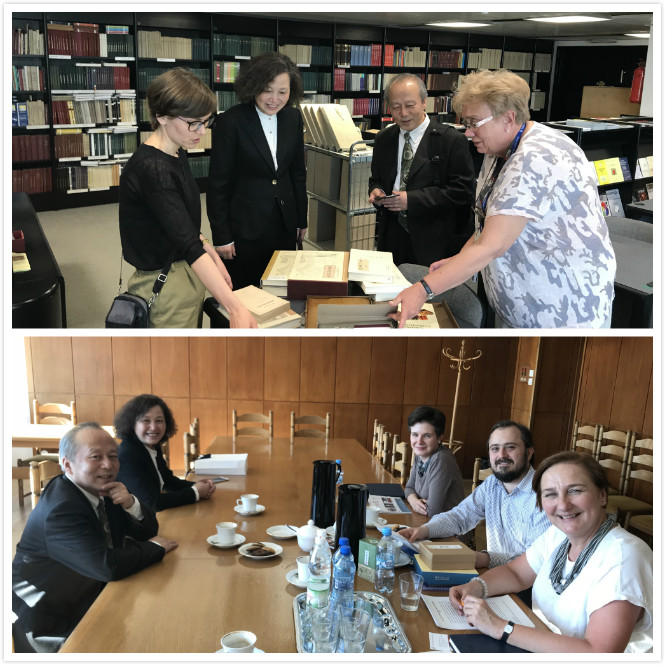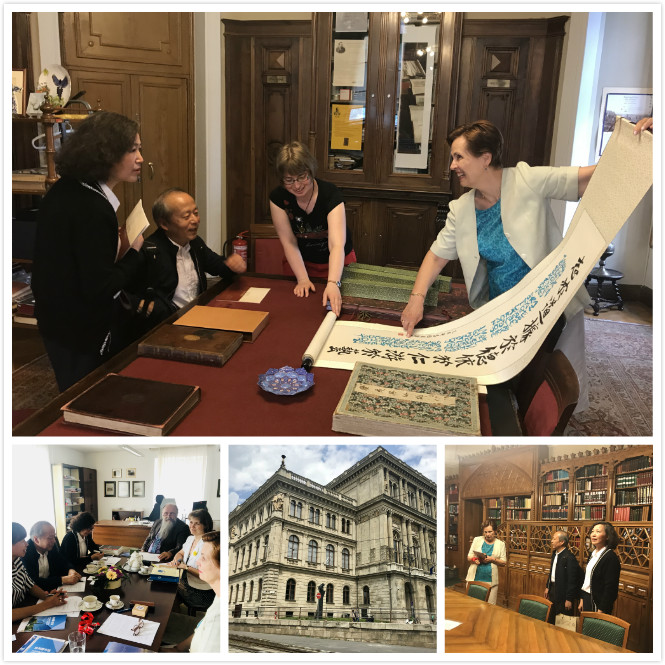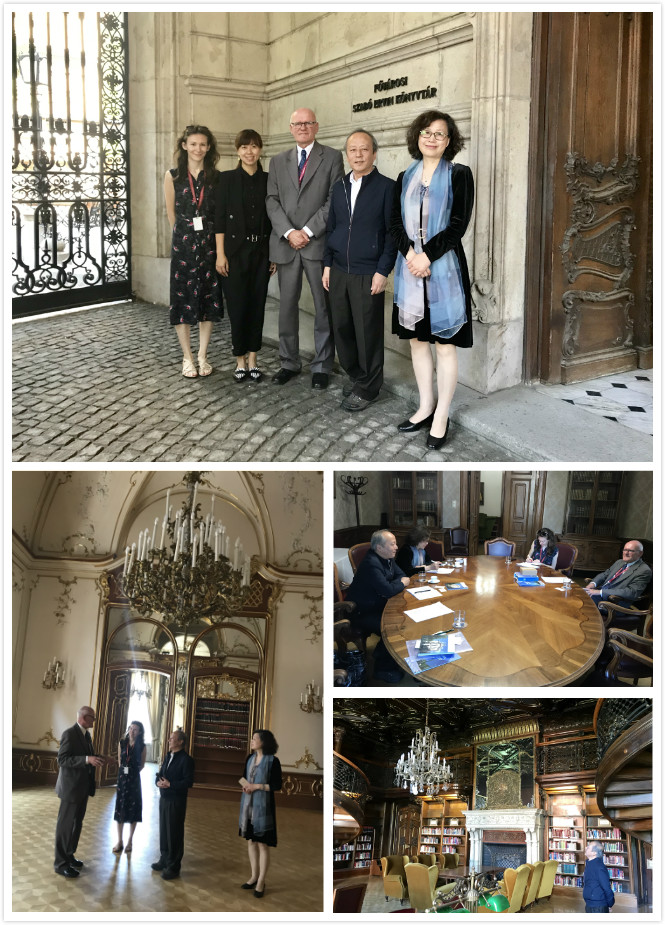The 1st China-CEEC (Central and Eastern European Countries) Curators' Forum of Libraries Union will be held on October, 2018, according to Hangzhou Declaration on Cultural Cooperation (2018-2019) Between China and Central and Eastern European Countries. At the beginning of May 2018, Lu Xiaolong, deputy director of the Hangzhou Municipal Bureau of Culture, Radio, TV, Film, Press and Publication, He Yuyin, director of Administration Office and Elaine Wu, director of International Exchange and Research Department of Hangzhou Public Library paid a visit to 5 libraries in Poland and Hungary, for the purpose of collecting suggestions and opinions about China-CEEC Libraries Union, including National Library of Poland, Provincial Public Library in Lodz, The Hungarian National Széchenyi Library, Library and Information Center of the Hungarian Academy of Sciences, and Metropolitan Ervin Szabó Library.
Positive responses to Statement on Establishment of China-CEEC Libraries Union and Action Plan of China-CEEC Libraries Union (2019-2020) have been received and possible cooperative programs have been discussed, including a collaborative relationship for shared bibliographic data, exchanges of literature, staff exchange and training, cultural exchanges, as well as mechanism for publicity. As there are 21 libraries from Poland interested to join the libraries union out of 43 libraries so far in total, Poland offers the greatest support for the forum. Ms. Slaska, deputy director of National Library of Poland promised to form a curators’ team involving these most active members to join the forum, a keynote speaker included. At the same time, guided tours were arranged to give the delegation a glimps of how these libraries operated and what services they offered to their patrons. It is believed that the visits and the preliminary talk will help the cooperation between China and central and eastern European countries in the future.
● National Library of Poland (http://www.bn.org.pl/en/)
The National Library acts as the central library of the state and one of the most important cultural institutions in Poland. Its mission is to protect national heritage preserved in the form of handwritten, printed, electronic, recorded sound and audiovisual documents. The primary task of the National Library is to acquire, store and permanently archive the intellectual output of Poles, whether the works of citizens living on Polish soil, the most important foreign works, or publications related to Poland and published abroad.

● Provincial Public Library in Lodz (https://wbp.lodz.pl/)
Provincial Public Library in Lodz is a public institution with a reputation dating back to 1917. Based on modern technologies, it provides readers with rich collection, educational opportunities, and various activities. It also acts as a center for librarians' training and providing operational guidance for public libraries in the Lodz region.

● National Széchényi Library (http://www.oszk.hu/en)
Serving as a storehouse of knowledge, National Széchényi Library is an institution storing and making publicly available traditional (paper-based) and modern (electronic) library documents of the Hungarian cultural heritage.

● Library and Information Center of the Hungarian Academy of Sciences
(https://konyvtar.mta.hu/index_en.php)
The Library and Information Center of the Hungarian Academy of Sciences was established by historian Count József Teleki, the first President of the Academy, who offered his 30,000 volume library to the Academy in 1826. The Library began operation in 1831, simultaneously with the Academy itself. The collection, growing with help from various sources, was opened in 1844 for scholars after the necessary organizing and processing work had been completed. In 1865 the Library received suitable and up-to-date accommodation in the newly constructed palace of the Academy, built to the plans of August Stüler. These favorable conditions made it possible in 1867, in accordance with the intention of the founder, for the Library to be opened "for the use of all citizens of the country".

● Metropolitan Ervin Szabó Library (www.fszek.hu)
The Metropolitan Ervin Szabo Library started to operate in 1904. Ervin Szabó, who was the first director of the library, strove to expand the collection with a focus on the Social Sciences, while simultanuously developing it into a modern public education library at the service of a larger audience. Under his management, from 1910, the Metropolitan Library started to be reorganized as an institution of 'public library'. At present, the library houses a collection of 1.1 million volumes.
